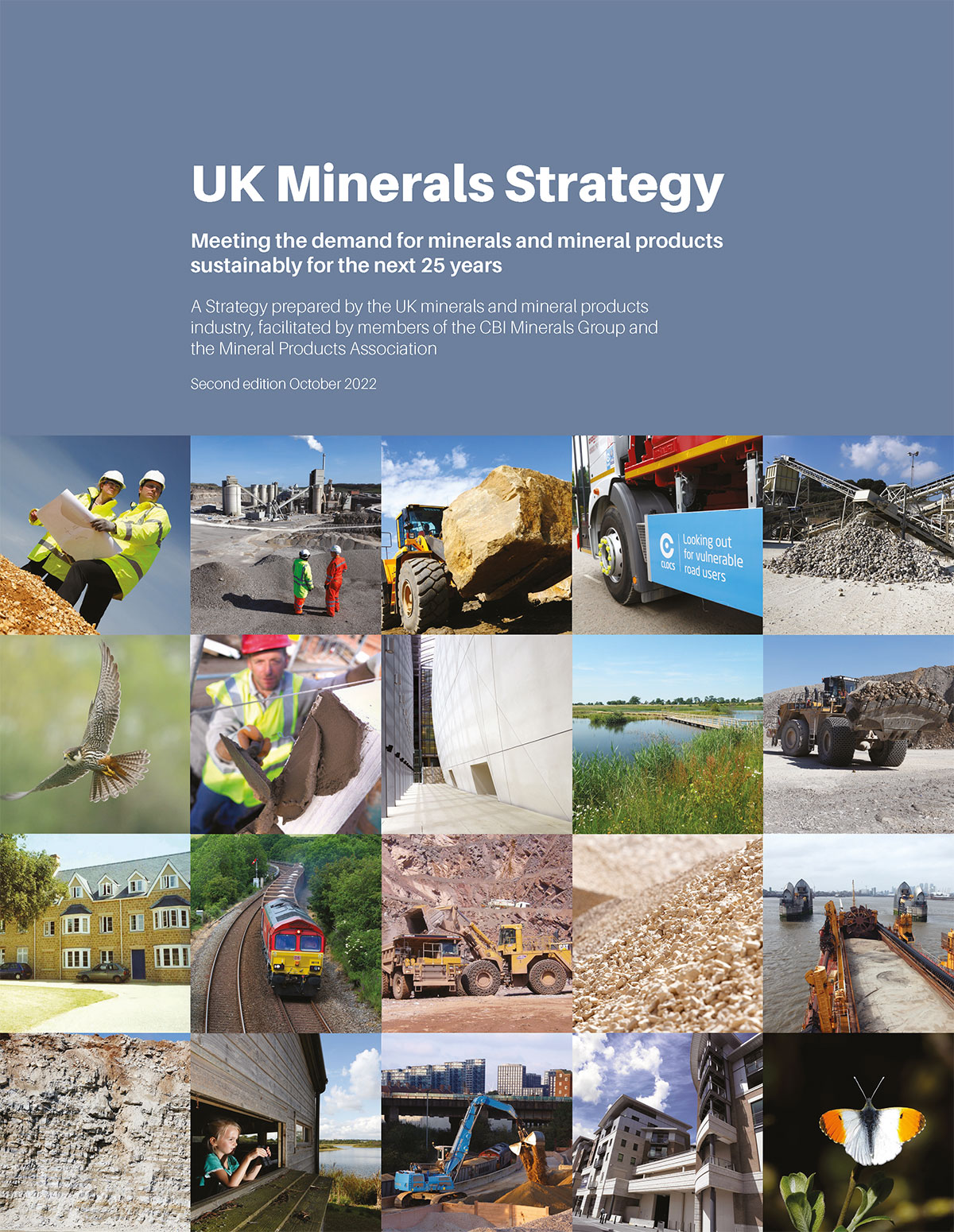
The economic importance of UK-sourced essential minerals is the focus of a new strategy document launched by the CBI Minerals Group and the Mineral Products Association (MPA).
Minerals and mineral products represent the largest flow of materials in the economy – around 1 million tonnes daily – and they form the foundation for construction, manufacturing and the infrastructure needed for a greener economy.
But UK producers say the need for minerals is poorly understood by Government, and the availability and supply of indigenous mineral resources are often taken for granted – a situation that could lead to shortages and over-reliance on imports.
The first UK Minerals Strategy was published in 2018 to help the UK's demand for minerals to be met sustainably for the next generation. The new second edition of the Strategy addresses key issues that have emerged and evolved over the last five years, including:
- Climate change: Net zero carbon, climate change mitigation, adaptation & resilience, implications for and contribution from minerals;
- Nature recovery: Biodiversity gain and contribution of minerals development, including the legacy provided by restored sites;
- Essentiality: Stressing that while some minerals are considered critical, all are essential and may become critical should supply be compromised;
- Replenishment: Continued under-replenishment of mineral reserves, production capacity and looming arbitrary end-dates on many reserves.
Over the next 25 years, future demand for minerals has been revised upwards to around 8 billion tonnes of mainly construction and industrial minerals to be sourced primarily from indigenous resources, all of which will require delivery through private investment, supported by effective and efficient planning and permitting.
The CBI Minerals Group and MPA are calling on the new Government to produce a national 'statement of need' for minerals and to deliver on the main objectives of the UK Minerals Strategy:
- To recognise that minerals and mineral products, and the industry that supplies them, are essential to the economy, our quality of life and the transition to net zero;
- To recognise that supply cannot be assumed – it needs to be planned, monitored and managed;
- To ensure steady and adequate provision and supply, primarily through the land use planning system;
- To establish supportive policy, plus operating and trading conditions to enable UK industry to thrive and invest in future supply; and
- To recognise the proven legacy of restored mineral extraction sites in delivering environmental, social and economic benefits to society.
David Payne, secretary of the CBI Minerals Group and Senior Planning Advisor at the MPA said: "The importance of secure and resilient supply chains has become a major strategic issue for many sectors of the UK economy, not least for energy and critical minerals. While minerals supplied from indigenous sources, such as those used in construction, may appear secure, continuity of supply cannot be guaranteed without new planning permissions to replace exhausted mineral reserves. It is vitally important that Government and devolved administrations understand this and that future requirements for and supply of minerals are under review."
Outlining how the new UK Minerals Strategy should be taken forward, he said: "This new strategy needs to be regarded as a material consideration in the development and implementation of economic and planning policy, and used as a framework for the development and implementation of other material and product- specific strategies and actions."










